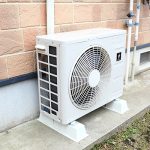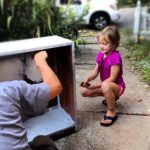
A Comprehensive Guide to Split System
October 11, 2024
The Impact Of Luxury Home Builders On Residential Architecture Trends Introduction
November 22, 2024There’s no doubt that stormwater services are essential in maintaining a clean, functional drainage system in homes. Nevertheless, many homeowners encounter different types of drain-related problems. This guide will focus on understanding, identifying, and managing one of the most common issues – a blocked stormwater drain.
Understanding Stormwater Drains
Firstly, It’s crucial to know what stormwater drains are and the role they play in residential settings. Stormwater drains are systems specifically designed to transport rainwater from roofs, driveways, paved areas or lawns to the city’s stormwater drain network. They help in preventing localised flooding during rainstorms and maintain your property’s integrity.
The stormwater drain system differs from regular sewage pipes. While stormwater drains deal mainly with rain runoff, sewage pipes carry waste materials from our showers, toilets, and sinks to the sewage treatment centre. Misidentifying these two could have serious consequences, such as contaminating clean water sources and creating environmental hazards.
Identifying A Blocked Stormwater Drain
If you hear unusual noises in your pipes, smell unpleasant odors, or experience slow water discharge, these could be indicative of a blocked stormwater drain. These symptoms may seem less problematic initially, but they indicate an underlying issue that shouldn’t be ignored.
Responding promptly to these signs is crucial. Although you might be tempted to handle the blockage yourself, certain situations require the expertise of a professional drain cleaning service. Untreated blockages can escalate over time, turning a seemingly minor problem into a major issue.
Consequences Of Ignoring A Blocked Drain
The ramifications of ignoring a blocked stormwater drain can be severe, extending from home damage to health risks and council fines. Blocked drains can cause localised flooding, potentially damaging your property. Additionally, standing water from blocked drains can become a breeding ground for bacteria, posing health threats to you and your family.
Proactive measures are essential in preventing these adverse effects. Regularly clean and maintain your stormwater drains to avoid blockages rather than waiting for a problem to arise before taking action.
The Process Of Cleaning A Blocked Stormwater Drain
Cleaning a blocked stormwater drain involves several steps. Initially, the nature and extent of the blockage need to be assessed, often through a CCTV drain survey. Tools like drain rods or a hydro-jet might be used to dislodge and remove the blockage, followed by a thorough cleaning process to ensure no residue remains.
While these operations may sound simple, they require technical knowledge and should be conducted by professionals. Specialised tools and years of experience allow them to perform the job efficiently and mitigate any potential issues.
DIY Tips: What You Can Do At Home
Although some minor drain problems can be handled at home, it’s essential to know when professional input is necessary. A plunger or a plumber’s snake can be handy tools for small clogs. However, safety should be your priority when undertaking a DIY drain clean-up. Ensure you wear protective gear and never try to dislodge stubborn blockages forcibly.
Choosing The Right Drain Cleaning Services
When hiring a professional drain cleaning service, consider factors like credentials, years of experience, and pricing transparency. Ensure that the company you select is certified and adheres to the council regulations. Contracting experienced and credible professionals reduces the chance of future blockages and complies with industry standards.
The Value Of Regular Drain Maintenance
Scheduling regular stormwater drain inspections and cleanings with a trusted service provider has many benefits. It minimises the chances of sudden blockages, detect potential issues early, and ensures your drainage system functions optimally.
Conclusion
A clean, functional stormwater drain system is crucial for maintaining the structural integrity of your property while contributing positively to public health and the environment. Actively keep your stormwater drains clean to avoid unnecessary complications, and when in doubt, do not hesitate to seek professional help.







